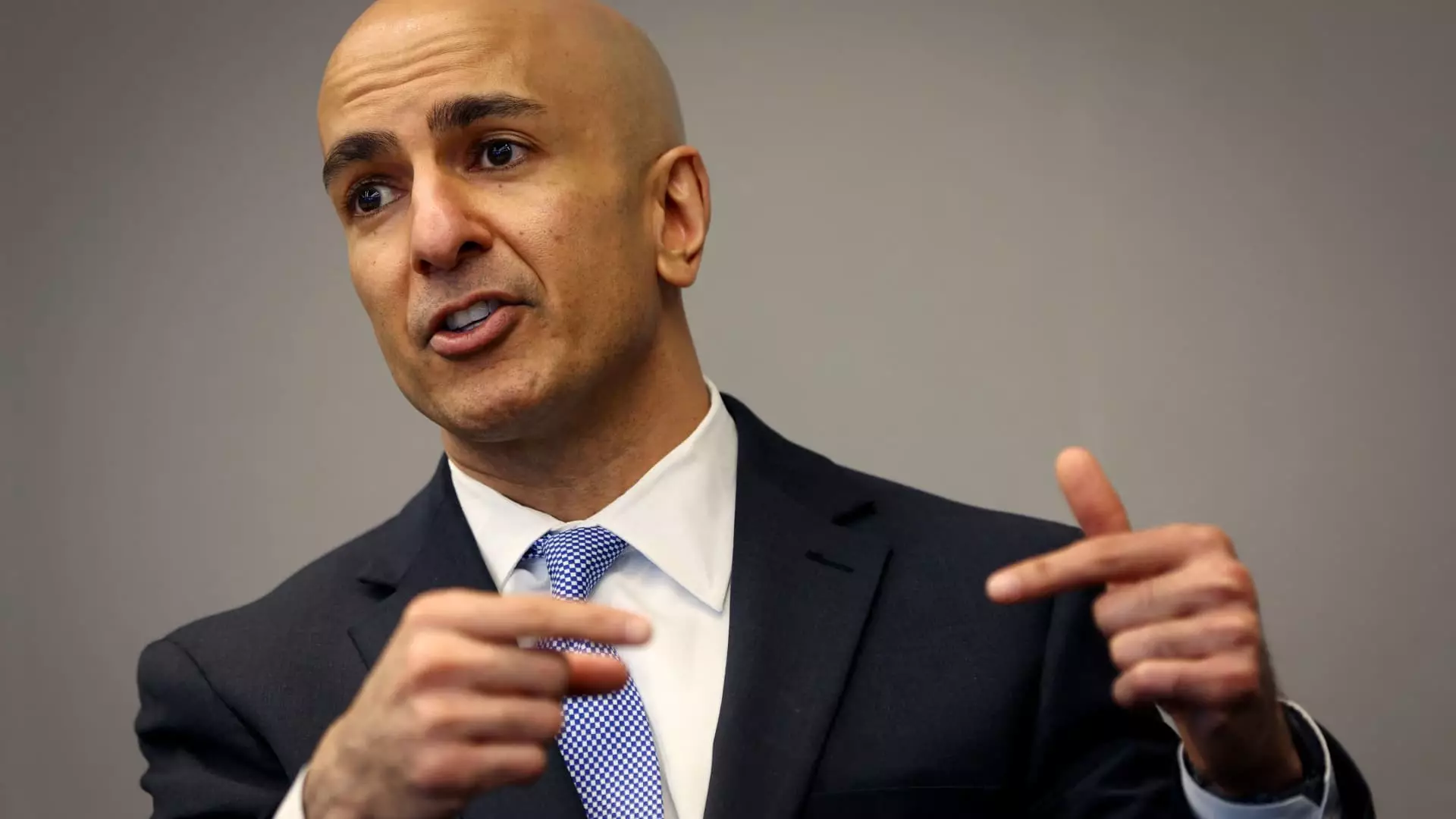The recent remarks by Minneapolis Fed President Neel Kashkari reveal a troubling complacency about the current inflation landscape. Despite inflation running well above the Fed’s target—specifically, a 3.1% core inflation rate in August—Kashkari advocates for multiple interest rate cuts, trusting that tariffs are a transient issue. This reasoning highlights an unsettling disconnect between monetary policy and actual economic realities. Relying on the assumption that tariffs are temporary dismisses the persistent nature of inflation driven by supply chain disruptions, wage growth, and housing costs. To suggest that inflation above 2% is harmless or fleeting borders on dangerous optimism, especially in an economy that shows signs of overheating, risking policy future misjudgments.
A Dovish Approach: Undermining Credibility and Long-Term Stability
Kashkari’s preference for lowering interest rates, even with inflation still elevated, reflects a profoundly dovish stance that may undermine the credibility of the Federal Reserve. When policymakers prioritize short-term economic gains over safeguarding long-term price stability, they risk creating a volatile environment. The Fed’s recent decision to cut rates amidst rising inflation is an acknowledgment that monetary restraint is loosening unnecessarily. This approach opens the door to unchecked price increases, which eventually erode consumer purchasing power and disproportionately harm lower and middle-income families—precisely those the Fed claims to support. Instead of pulling back from aggressive easing, the central bank should focus on rigorous inflation control, not premature comfort with economic leniency.
Political Motivations and the Erosion of Institutional Integrity
The decision to raise rates in an inflationary climate and then quickly consider cuts cannot be divorced from current political influences. Kashkari’s optimism about tariffs’ transient effects appears overly influenced by an administration eager to promote a pro-business narrative that downplays inflationary risks. The timing of these rate adjustments aligns suspiciously with political objectives, suggesting perhaps a capitulation to short-term political pressures. The appointment of new figures like Stephen Miran, who harbors criticism of the Fed, indicates a changing institutional landscape that may prioritize market stability over necessary regulatory rigor. If the Fed succumbs to political pressure and weakens its fight against inflation, it risks long-term inflation expectations becoming unanchored, which could spiral into a less controllable economic crisis.
The Danger of Ignoring Reality for Political Convenience
Ultimately, Kashkari’s stance exemplifies a troubling tendency: prioritizing political convenience over sound economic principles. Backing off from rate hikes despite clear signs of overheating demonstrates a lack of genuine concern for the health of the economy’s foundational stability. It’s a gamble—one that risks leaving consumers and small businesses exposed to the fallout of runaway inflation, all while creating the illusion of policy flexibility. The central bank should exercise caution, resist political pressures, and remain committed to its inflation mandate. Instead of rushing to cut rates in a misguided attempt to appease political tides or boost short-term market confidence, the Fed must stay vigilant and recognize that tackling inflation head-on is essential for sustainable growth and economic fairness.


Leave a Reply